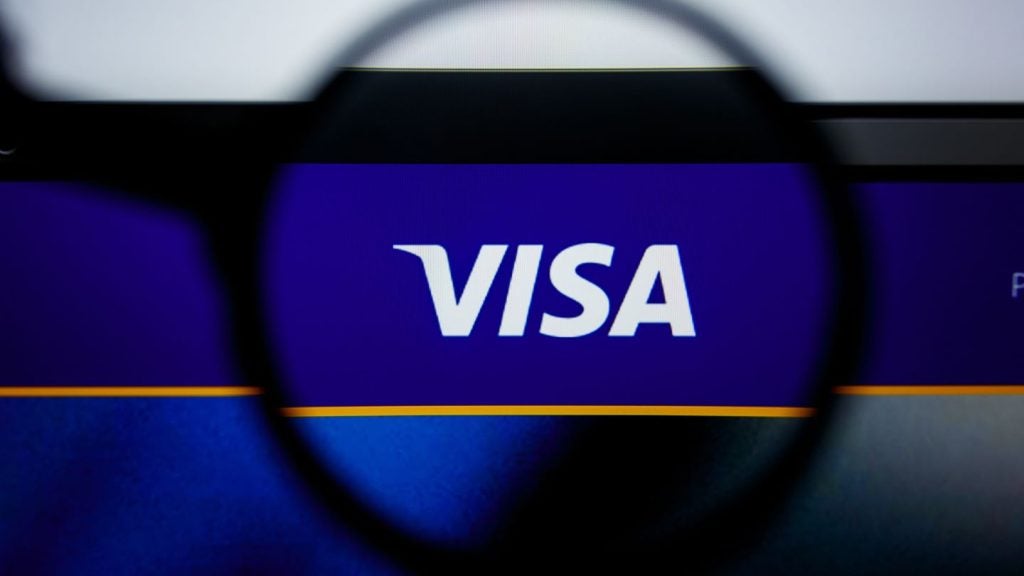facing a severe recession, but now the country’s payment card
market is one of the most dynamic in the Middle East. However,
increasing regulatory scrutiny is proving to be something of a
challenge. Victoria Conroy reports.
the most developed payment cards markets in the Middle East, helped
by a growing economy. Israel emerged from the recession of
2001-2003 to enjoy increased monetary discipline and improving
macro-economic trends, and the year 2007 saw positive economic
growth for the fifth year running. According to the Israeli Central
Bureau of Statistics, gross domestic product rose by 5.3 percent in
2007, which in turn helped private consumption to rise by 4.8
percent. Political troubles with the country’s neighbours have had
relatively little impact, except for the latter half of 2006 when
the war against terrorist group Hezbollah in Lebanon impacted the
tourist economy briefly. Around 2.3 million tourists entered the
country in 2007, representing a 24 percent increase on 2006.
is still significant growth potential for several reasons: falling
unemployment rates, significant levels of direct inward investment
and relatively low interest rates. Also, the financial leverage of
Israeli households is well below the G10 average.
payment cards in several areas. Online shopping is a major driver,
thanks to a 72 percent penetration rate in household internet
access, and a growing number of merchants are accepting payment
cards. Technological advancement has led to a fertile market for
new products such as prepaid cards and smart cards. Regulation and
government stimulation have also played their part, although the
pace and depth of some reforms have frustrated banking industry
attempts to grow market share, in the face of accusations of
anti-competitive practices.

Card usage
Israel’s card market is characterised by three major bank players
who have established dedicated credit card units. As such, many
credit card customers in Israel tend to be customers of the
company’s parent bank, in contrast to other markets such as the UK,
where credit cardholders are just as likely to have a credit card
with banks that they are not customers of. Cash usage has been
declining steadily in Israel, although the year 2006 saw credit
cards in particular grow rapidly thanks to an increasing array of
functionality and additional services offered by issuers.
published statistics in mid-2007 for the year ending December 2006,
showing that the number of credit cards active at the end of the
year stood at 4.8 million, compared with 4.2 million in 2005 – a
growth of 15.2 percent. The number of credit card transactions has
also seen a similar growth rate of 10.3 percent year-on-year, with
532 million transactions as of end of 2006, compared with 482
million in 2005. However, average credit card transaction values
have climbed only gradually over the period of 2003-2006, with the
average credit card transaction in 2006 amounting to ILS242 ($67),
compared with ILS240 in 2005. The average number of transactions
per card per year has fallen slightly since 2004, standing at 111.8
in 2006 (see figure 1). CI estimates that using an average growth
rate of 10 percent per year, at the end of 2007 there were around
5.5 million credit cards in issuance in Israel. In 2006,
transactions using credit cards totalled ILS131.5 billion (of which
ILS125.8 billion took place in Israel), an increase of 9.9 percent
compared with 2005.
a hybrid of deferred debit cards and credit cards, functioning more
like charge cards. Whereas credit cardholders elsewhere in the
world would typically be billed for purchases at the end of a
monthly period, in Israel, total expenditures for any given month
are automatically debited from the cardholder’s current account.
Traditional credit cards that allow customers to maintain revolving
credits and decide each month how much to repay the credit card
company were first launched in Israel only at the beginning of 2005
by Leumi Card and by Israel Credit Cards (ICC CAL). In Israel,
unlike in many other countries, there are annual fees associated
with credit cards. However, the majority of these fees may be
waived if the average monthly purchase exceeds a fixed
amount.

How well do you really know your competitors?
Access the most comprehensive Company Profiles on the market, powered by GlobalData. Save hours of research. Gain competitive edge.

Thank you!
Your download email will arrive shortly
Not ready to buy yet? Download a free sample
We are confident about the unique quality of our Company Profiles. However, we want you to make the most beneficial decision for your business, so we offer a free sample that you can download by submitting the below form
By GlobalDataRegulators step in
Growth in 2006 was stimulated by issuers offering more flexibility
to cardholders, offering them the ability to set the level and
monthly date of repayments according to the customer’s wishes and
ability, and was part of issuers’ overall target of increasing
market share by targeting non-bank customers. This was in part
driven by the implementation in June 2006 of legislation, Directive
325 (also known as the ‘overdraft law’) which limits the amount of
credit given to consumers by their banks. The law was brought in to
encourage consumers to handle their accounts more responsibly, and
was fully implemented during 2007. Credit card companies offer an
additional account not connected to those offered by the banks, in
addition to side loans, in order to help consumers to balance their
finances. These additional accounts come with revolving credit
cards and together constitute the most interesting development in
the Israeli card market in 2007.
extended credit via their current accounts, which Israeli
regulators viewed as unacceptable for two reasons. Firstly, the
customer pays a very high interest on the credit beyond the agreed
limit, which is almost always the most expensive in the banking
system. According to Israeli regulators, a large proportion of bank
customers were not aware of what interest they were paying.
Secondly, there was no certainty that the bank would honour cheques
drawn on an account that had deviated beyond the agreed credit
limit. The return of debits due to lack of funds incurred a bank
charge to the customer. The legislation was initially devised in
order to reduce Israel’s personal per-capita debt; however, the
implementation of this law has had a very mixed reception, with
many in the industry warning that individuals and small businesses
are now at greater risk of bankruptcy as the reform makes it harder
for them to pay off higher rates of debt.
spurred credit card growth in Israel as consumers seek alternative
lines of credit outside of their traditional banking relationships.
Issuer-driven growth and consumer preference for credit cards were
the major factors in a 61.1 percent increase in total outstanding
balances in Israel in 2006. According to the central bank of
Israel, the rise in the number of cards and the expansion in
economic activity helped to boost the improvement in total income
of the credit card companies, which reached ILS2.46 billion in
December 2006, a rise of 14.6 percent on the previous year. The
share of the income from households stood at 60 percent.
an increase in credit risk, which led to Israeli banks increasing
their loan loss provisions from 3.2 percent at the end of 2005 to
3.8 percent at the end of 2006. Most of the growth in risk stemmed
from the failure to collect debts from holders of revolving credit
cards. Israeli issuers such as Isracard and Leumi Card have both
noted that the main effect of the overdraft law has been to
increase non-performing loan (NPL) loss provisions, with Leumi Card
in particular reporting that in 2007, NPLs increased by ILS74
million.

A consolidated market
Another defining characteristic of Israel’s card market is the
entrenched positions enjoyed by Israel’s three major credit card
companies, which are also owned by the country’s major banking
groups. The three major credit card companies in Israel are
Isracard, Leumi Card and ICC CAL. The dominance enjoyed by the
domestic issuers has long gone unchallenged for several reasons,
including the barriers to entry faced by foreign issuers, who lack
the widespread branch networks and distribution points of domestic
issuers. There is also the fact that Israel remains, in card
payments terms at least, a small country.
by banking regulators, who are cracking down on what they perceive
to be the duopoly of Bank Hapoalim (owner of Israel’s largest card
issuer, Isracard) and Leumi Card. In a speech given in 2007,
Stanley Fischer, governor of the Bank of Israel, stated: “Why is
the level of competition low? In Israel there are only a limited
number of banks, and in effect two large banks capture most of the
banking market. On many occasions I meet international financial
bodies, including foreign banks, in order to interest them in
entering the local retail banking market. One of the reasons for
the fact that the foreign banks almost entirely ignore the
household sector is that the local banks have a widespread branch
network, and the local banks offer financial services based on
advanced technological systems.”
regulators are looking at opening up competition by allowing new
types of banking players into the market, such as internet banks,
or converting the Israeli Postal Bank into a pure bank organisation
as part of postal privatisation. Web-based distribution, whereby
new non-bank players can access customers directly and compete with
banks, is also on the table. The further aggressive pursuance of
antitrust measures in the credit card sector is also regarded by
the regulators as one of the most effective ways to stimulate
competition.
in the market, as was demonstrated in 2004 when Israel’s three
largest issuers bowed to pressure from the Bank of Israel and
scrapped cardholder transaction fees. Isracard, Leumi Card and ICC
CAL scrapped the ILS0.43 fee charged on each transaction from 1
June 2004, instead recouping revenue by raising interest rates by
around 0.5 percent.
a new framework designed to restrict some of the activities of
credit and debit card issuers to bring them into line with the
restrictions faced by Israeli banks. Under proposals laid out by
the Bank of Israel, credit card companies would be required to set
a capital adequacy ratio of at least 9 percent, curbing the amount
of credit given to each issuer’s customers. Other proposals covered
how credit card companies interact with consumers, such as the
amount of information that customers are provided with, and how
cards can be issued, renewed and cancelled.

Monopolies and interchange
In 2005, the Antitrust Commissioner declared Isracard a holder of a
monopoly in clearing Isracard and MasterCard charge cards. Isracard
appealed the declaration, which led to the declaration being
cancelled. However, in August of that year, the Israel Antitrust
Authority notified Isracard that the Commissioner intended to
impose directives on Isracard under Section 30 of the Restrictive
Trade Practices Law. The main points of the directives, of which
Isracard received a draft, were:
Leumi Card, CAL and the Commissioner, the credit card companies
reached an arrangement under which they would enter into a detailed
local agreement among themselves regarding full local clearing in
Israel, including the operation of an appropriate technical
interface. This meant that for the first time, the cross-acquiring
of Visa and MasterCard brands by all three major credit card
companies was now a reality, as opposed to the cross-acquiring
arrangements that were customary up until then, which contained
arrangements solely for Visa cards.
their parent banks entered into an agreement with regulators
concerning the interchange levels of Visa and MasterCard credit
cards, which is due to expire on 1 July 2013. The agreement
specifies the rates of interchange and the structure of the
categories of interchange applying to the credit card companies
during the effective period. The agreement outlines a gradual
decrease in the rate of interchange from 1.25 percent at present
down to a rate of 0.875 percent starting in July 2012, alongside
the reduction in the number of categories over the effective
period. The agreement also specified guidelines that prohibit the
interdependence between various types of credit cards being cleared
by a business with each of the credit card companies.
discriminate between customers of a bank holding a credit card
issued by that bank and other customers of that bank who do not
hold credit cards issued by the bank. In May 2007, Isracard and
Aminit signed a local agreement and in June 2007, all the credit
card companies began direct clearing in Israel, through the
technical interface, of transactions executed with MasterCard and
Visa credit cards.
the outcome of the agreement is expected to be that the acquiring
of Visa transactions will be more competitive in future, along with
a gradual decline in the rate of interchange.
examining the credit card industry under the jurisdiction of the
Ministry of Finance published a report stating that there were
“market failures” in the Israeli credit card market and published a
list of recommendations, including the appointment of an authorised
party who, in order to ensure competition in the area of clearing,
would:
credit card companies currently operating in the Visa and
MasterCard markets, as well as between the companies and any new
company to enter these markets.
system of significant volume to allow all clearers to clear their
cards, thereby opening the clearing of these credit card systems to
competition.
Banks as the authorised party, and to grant him the authority to
supervise issuers and clearers, including supervision of the rate
of interchange fees.
recommendations with regard to discounting of transactions executed
using credit cards. In March 2007, a private law proposal based on
the committee’s recommendations was submitted to the Israeli
parliament, the Knesset. Also, in March 2007, two private law
proposals were submitted to the Knesset concerning the separation
of ownership in credit card companies from the banks. This drew a
strong response from Bank Hapoalim in particular, which said that
the materialisation of any of the above measures would lead to a
decrease in income.

ISRAELI CARD GIANTS RETAIN STRANGLEHOLD
Isracard
Isracard is fully owned by Bank Hapoalim, and is the largest issuer
in the market. It also has the biggest market share in terms of
both volume and value. Also under the Isracard umbrella are
Europay, Poalim Express and Aminit. They issue, operate and market
credit cards within and outside the group for use in Israel and
abroad. Poalim Express issues American Express cards within Israel,
and as of September 2007, the number of cards issued amounted to
222,000, compared with 205,000 at the end of 2006.
MasterCard cards issued by Isracard and Europay as of 30 September
2007 was 2.5 million, compared with 2.4 million cards on 31
December 2006. In the first nine months of 2007, the volume of
activity in Isracard and MasterCard cards reached ILS46.4 billion,
compared with ILS42.3 billion in the same period last year. In the
first nine months of 2007, the volume of activity in American
Express cards reached ILS5 billion, compared with ILS4.3 billion in
the same period last year. The number of Visa cards issued by
Aminit as of September 2007 was 28,000, compared with 21,000 cards
at the end of 2006.
issued by Isracard includes cards issued jointly with consumer,
professional and other organisations, clubs, and groups, such as
Ashmoret cards for members of the Israel Teachers Union, HOT cards
for members of the Union of Practical Engineers and Technicians,
membership cards for career military personnel, credit cards for
members of the Israel Bar Association, and a range of other
collaborations with various consumer clubs.
cards that provide revolving credit (under the brand name More),
allowing customers to determine the terms of repayment within the
framework of the offered programme.
agreement had been struck between Isracard, Mizrahi-Tefahot Bank
and Europay, under which Mizrahi-Tefahot branded credit cards will
be issued, and the provision of service arrangements by Isracard
and/or Europay for credit cards to be issued by them and
distributed by Mizrahi-Tefahot Bank to its customers.

Leumi Card
Leumi Card was established in 2000 and has licensing agreements
with Visa and MasterCard, under which it received licenses for the
issuance and acquiring of Visa cards and MasterCard cards.
the issuer of Leumi Visa credit cards jointly with Bank Leumi. In
September 2001, the bank and Leumi Card began issuing MasterCard
credit cards to the bank’s customers. Since May 2000, Leumi Card
has been operating in the field of Visa acquiring for businesses.
Leumi Card commenced acquiring transactions for MasterCard credit
cards during April 2002.
reached 1.48 million, an increase of 14 percent compared with 2006,
while the number of active cards reached 1.26 million (85 percent
of valid cards), an increase of 13.5 percent compared with 2006. Of
total cards, some 188,000 were MasterCard cards (18 percent of
total cards, an increase of 9 percent), with the remaining some 1.3
million cards being Visa cards. The cards’ activity turnover
increased in 2007 by 16 percent relative to 2006, compared with an
increase of 11 percent in the system as a whole, according to data
published by the Central Bureau of Statistics. The acquiring
turnover rose during this period by 13 percent.
amounted to around 280,000 (19 percent of all cards), an increase
of 69 percent compared with 2006, of which 209,000 cards were
revolving credit cards bearing the ‘Multi’ brand. The number of
active non-bank affiliated cards reached some 229,000 (18 percent
of all valid cards), an increase of 78 percent compared with 2006.
Profit from credit in the field of issuing increased by 100 percent
and amounted to ILS26 million, while profit from acquiring
increased by 31 percent to ILS21 million.
first ‘kosher’ credit card, which actively prohibits any purchases
being made on the Sabbath, the Jewish day of rest. Leumi offered
the card after spotting a gap in the market which fitted into the
lifestyle of the sizable Orthodox Jewish community in Israel, many
of whom do not carry a credit card. The card is either Visa or
MasterCard-branded but is only honoured in shops observant of the
Sabbath. Any transactions attempted on the Sabbath are rejected.
According to Leumi, the estimated market for the new card was about
ILS10 million a month.
Free, which comes without commissions and benefits, aimed at
consumers who do not wish to utilise the typical benefits attached
to credit cards, along with a range of premium, prepaid,
youth-orientated and payroll cards for foreign workers in Israel.
Leumi also has co-branding relationships with retailers, gas
stations, employers and membership clubs in Israel.
to upgrade all of its cards to chip or smart cards. At the end of
2007, half of its clientele were holding smart cards. The company
aims to encourage the financial card industry to support smart card
technology, with the hope that it will eventually reduce losses due
to fraud by approximately 80 percent.
ICC CAL
ICC CAL was founded in 1978 and at present over 1.4 million
customers use the company’s cards. Originally founded by Bank Leumi
(which owned 65 percent) and Discount Bank (35 percent), CAL is now
owned by a business partnership between banks and non-banking
corporations: Discount Bank (72 percent) and First International
Bank (28 percent). In 2007, it teamed up with Harel Insurance
Investments to launch a joint credit card and lending company.
Previously Harel had owned 5 percent of CAL, but sold the shares in
January 2007 to Israel Discount Bank.
market share of credit cards in Israel at the end of 2007, with the
number of cards issued in association with its banking partners
amounting to 943,000 as of September 2007, with cards issued
separately by ICC CAL independent of its banks numbering
438,000.
the membership, club and retailer networks, offering all-purpose
credit cards to customers regardless of where their bank accounts
are held. In January 2008, Harel and ICC CAL launched the Relax
credit card for Harel’s private insurance customers, marking
Harel’s first foray into the consumer credit market in Israel. The
card will offer an immediate credit facility of ILS30,000 without
guarantees or collateral, and will be based on a revolving credit
facility offered by ICC-CAL.
fuel company Dor Alon Energy purchased a 49 percent stake in Diners
Club Israel for ILS21.3 million to offer their customers a
financial platform for credit card and loan services. Blue Square
owns 36.75 percent of Diners’ fully issued and paid up share
capital, while Dor Alon owns 12.25 percent. The partnership with
Diners Club Israel, a subsidiary of ICC CAL, was financed by a loan
from CAL to Blue Square and Dor Alon.
joint customers club of which Dor Alon owns 25 percent and Blue
Square owns 75 percent. Members of the customers club are entitled
to receive Diners Club Israel credit cards. Diners Israel issues
Diners Club credit cards under the name ‘YOU’ for customers of the
Blue Square and Dor Alon joint loyalty programme







